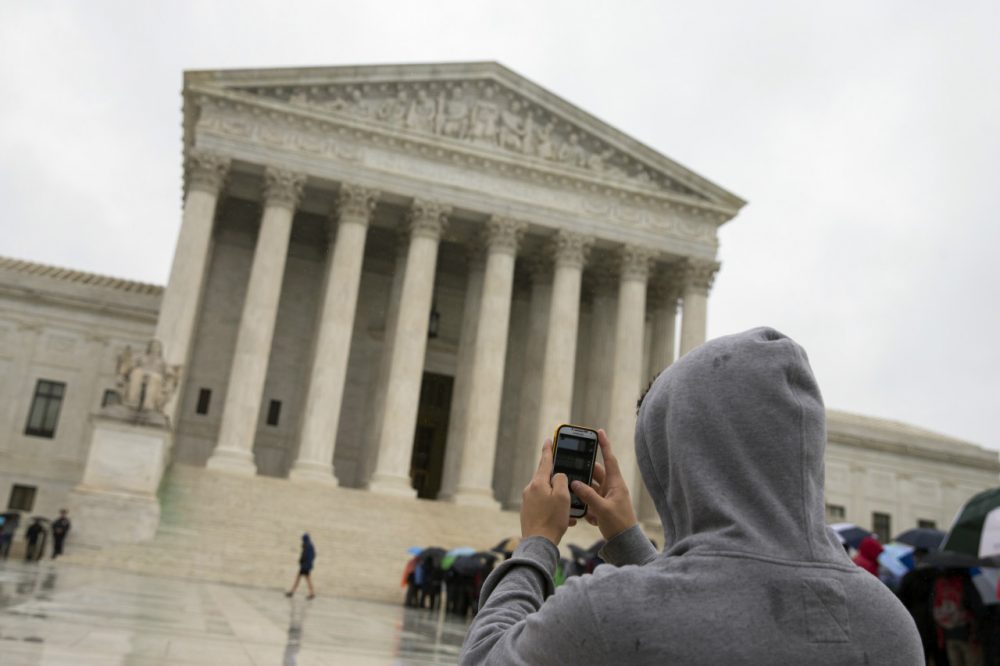Advertisement
Court Issues Sweeping Digital Privacy Ruling In Mass. Cell Phone Case

On Wednesday there was a landmark ruling that states unequivocally: Americans do have an expectation of privacy when it comes to their cell phones and smart phones. The justices ruled unanimously on two cases — one in California, the other in Massachusetts — where law enforcement officers searched a suspect's cell phone after their arrest.
In 2007, police arrested Brima Wurie after an apparent drug deal. They searched his flip-phone and found Wurie's home address. Then they then searched his home and found a larger stash of drugs and guns. Wurie was convicted and sentenced to more than 21 years in prison.
Now, in a sweeping ruling written by Chief Justice John Roberts, the court found such cell phone searches unconstitutional. Roberts wrote: "The fact that technology now allows an individual to carry such information in his hand does not make the information any less worthy of the protection for which the founders fought. Our answer to the question of what policy must do before searching a cell phone seized incident to an arrest is accordingly simple — get a warrant.”
Guests
Matthew Segal, legal director for the ACLU Foundation of Massachusetts which tweets at @ACLU_Mass.
Adam Gershowitz, professor at William and Mary Law School.
More
WBUR: Supreme Court: ‘Get A Warrant’ To Search Cellphones
- "In a strong defense of digital age privacy, a unanimous Supreme Court ruled Wednesday that police may not generally search the cellphones of people they arrest without first getting search warrants."
This segment aired on June 25, 2014.